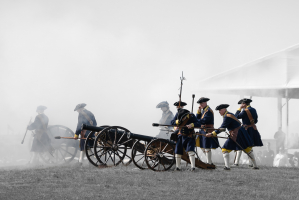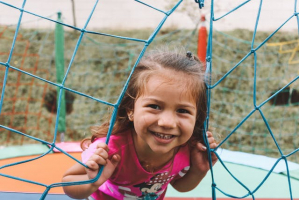Top 15 Narrative Essay Outline for College Students
Narrative essays give college students an opportunity to showcase their storytelling skills, sharing personal experiences and connecting with readers. In this ... read more...article, Toplist provides effective outlines as a roadmap to help students craft engaging and well-structured narratives.
-
I. Introduction
A. Hook: A vivid description or an engaging anecdote to capture the reader's attention.
B. Background: Briefly introduce the college setting and the time frame of the memory.
C. Thesis Statement: Clearly state the significance of the college memory and its impact on your life.II. Body
- Setting the Scene
A. Description of the college campus or location where the memory takes place.
B. Introduction of key characters involved in the memory, such as friends, professors, or mentors.
C. Establishing the atmosphere and emotions of the college environment.- The Event
A. Detailed account of the specific memory – what happened, where, and when.
B. Emphasis on sensory details to bring the memory to life for the reader.
C. Highlight the significance of the event within the context of your college experience.- Reflection and Impact
A. Personal growth and lessons learned from the memory.
B. How does the memory contribute to your college experience or shape your perspective?
C. The lasting impact of this memory on your life beyond college.III. Conclusion
A. Recap of the events and emotions tied to the best college memory.B. Reflection on the importance of cherishing such pivotal moments in life.
C. Closing thoughts on the enduring value of college memories and the influence they have on personal growth and development.
Image via Unsplash 
Image via Unsplash -
I. Introduction
A. Hook: Engage the reader with an intriguing opening, perhaps a significant event that piqued your interest.
B. Background: Provide a brief context of your life and hint at the upcoming pivotal day.
C. Thesis Statement: Clearly state the significance of the day and its impact on your life.
II. Body
- Setting the Stage
A. Briefly describe the time and place where the most important day occurred.
B. Introduce key individuals or elements that played a crucial role in making the day significant.
- The Event
A. Detailed account of the specific day, highlighting the events that unfolded.
B. Use sensory details to vividly paint the scene and capture the emotions of the day.
C. Discuss the series of events that shaped the day's importance in your life.
- Reflection and Impact
A. Reflect on the personal growth and realization that stemmed from the most important day.
B. Consider how the events of that day influenced your life trajectory and mindset.
C. Express the lasting impact and the lessons learned from that pivotal experience.
- Transformation and Growth
A. Discuss the changes, decisions, or actions that you undertook as a result of the most important day.
B. Illustrate how the day altered your perspectives and aspirations.
C. Showcase the transformation and growth that ensued from that significant event.
III. Conclusion
A. Recap the events of the most important day and its profound impact on your life.
B. Emphasize the enduring significance and the value it holds in shaping your identity.
C. Conclude with reflections on the enduring impact of this day and its role in shaping the person you are today.

Image via Unsplash 
Image via Unsplash -
I. Introduction
A. Engaging Hook: Begin with a captivating anecdote or reflection related to the college course that stirred your interest and passion.
B. Background: Briefly introduce the college setting and the significance of academic experiences.
C. Thesis Statement: Clearly state why the selected college course was your favorite and its impact on your academic journey.
II. Body
- Course Introduction
A. Description of the course: Introduce the specifics of the course, including the subject matter, key concepts, and the instructor.
B. Initial Impressions: Share your initial expectations and thoughts about the course before starting.
- Exploring New Perspectives
A. Learning Journey: Discuss how the course reshaped your perspective and understanding of the subject matter.
B. Engaging Content: Highlight particular topics, discussions, or projects that sparked your intellectual curiosity and engagement.
C. Personal Growth: Reflect on the personal and intellectual development that took place throughout the course.
- Impact on the Academic Journey
A. Influence on Major/Career: Explain how the insights gained from this course influenced your academic or career path.
B. Mentorship: Discuss the impact of the instructor or mentor in shaping your learning experience and personal growth.
C. Connections to Other Courses: Explore how the knowledge gained from this course affected your understanding of other subjects or courses.
- Application of Learning
A. Real-world Relevance: Discuss how the knowledge and skills acquired from this course have been applicable beyond the classroom setting.
B. Profound Experiences: Share any experiences or opportunities that stemmed directly from your participation in this course.
III. Conclusion
A. Reflection on the Journey: Sum up the significant impact of the course on your college experience and academic growth.
B. Lessons Learned: Discuss the enduring lessons and skills that you have taken away from your favorite course.
C. Closing Thoughts: Conclude with reflections on the lasting influence of the course and its contribution to your personal and academic development.

Image via Unsplash 
Image via Unsplash -
I. Introduction
A. Hook: Begin with an engaging statement or anecdote that reflects your deep connection with the book.
B. Background: Provide a brief overview of the book and its impact on your life.
C. Thesis Statement: Clearly state the significance of the book and why it holds a special place in your heart.
II. Body
- Book Introduction
A. Description of the Book: Introduce the plot, setting, and main characters of the book.
B. Initial Impressions: Share your first impressions and the circumstances under which you discovered the book.
- Emotional Impact
A. Connection with Characters: Discuss the characters that resonated with you and the reasons for this connection.
B. Themes and Lessons: Explore the themes and life lessons portrayed in the book that left a lasting impact on you.
C. Reflect on the emotional journey the book took you on and how it influenced your perspective on life.
- Influence on Personal Growth
A. Lessons Learned: Discuss the specific lessons or values you gained from the book and how they have affected your personal growth.
B. Impact on Decision Making: Share how the book has influenced your decisions and actions in real life.
C. Discuss how the book has contributed to shaping your beliefs and values.
- Cultural and Literary Significance
A. Historical and Cultural Context: Analyze the historical and cultural significance of the book and its relevance in today's society.
B. Literary Analysis: Touch on the literary elements that make the book outstanding and memorable.
C. Mention the critical acclaim, awards, or recognition the book has received.
III. ConclusionA. Reflection on the Book's Influence: Summarize the profound impact of the book on your life and worldview.
B. Encourage others to explore the book: Express why you would recommend the book to others, and how you believe it can resonate with a broader audience.
C. Conclude with a final thought on the enduring value and significance of the book in your life.
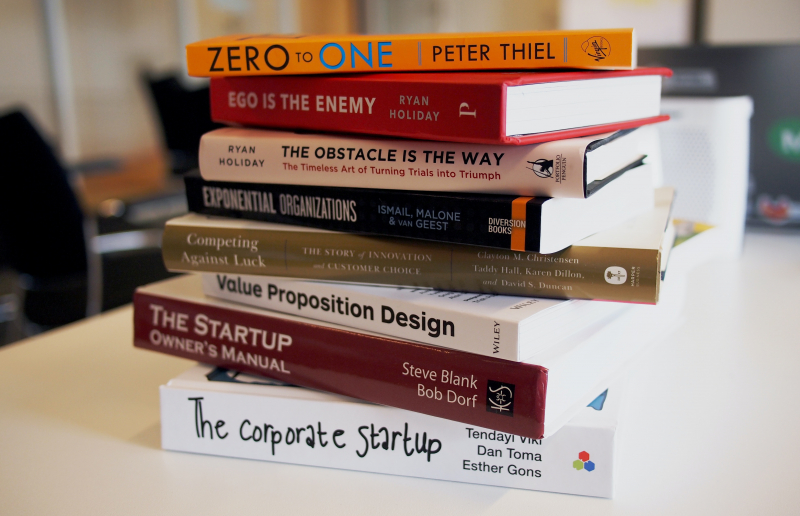
Image via Unsplash 
Image via Unsplash -
I. Introduction
A. Engaging Hook: Begin with an intriguing statement or anecdote that highlights the influence of Dr. Robert Waterman on your academic journey.
B. Background: Introduce the context of the narrative and the significance of the professor's role in your educational experience.
C. Thesis Statement: Clearly state the impact of Dr. Robert Waterman and why he holds a special place in your academic life.
II. Body
- Professor Introduction
A. Description of Dr. Robert Waterman: Provide an overview of the professor's background, expertise, and the course or subject you studied under him.
B. Initial Impressions: Share your initial perceptions and expectations before attending Dr. Waterman's class.
- Teaching Style and Influence
A. Teaching Methods: Discuss Dr. Waterman's unique teaching style, including any innovative or impactful approaches he employed in the classroom.
B. Personal Connection: Describe how the professor fostered a personal connection with his students and the impact it had on your learning experience.
C. Inspiring Engagements: Share specific examples of insightful discussions, assignments, or lectures that left a lasting impression on you.
- Mentorship and Guidance
A. Academic Mentorship: Discuss the guidance and mentorship provided by Dr. Waterman, both inside and outside the classroom.
B. Impact on Personal Growth: Reflect on how the professor's guidance influenced your academic and personal growth.
C. Influence on Career Path: Explain how Dr. Waterman's mentorship impacted your academic and career pursuits.
- Enduring Influence
A. Beyond the Classroom: Discuss the lasting impact of Dr. Waterman's teachings and mentorship in your post-graduation life.
B. Application of Lessons: Share how you have applied the knowledge and skills gained from Dr. Waterman's class in real-life situations.
C. Influence on Values and Perspective: Reflect on how the professor's teachings influenced your worldview and approach to learning.
III. Conclusion
A. Reflection on Educational Journey: Summarize the profound impact of Dr. Robert Waterman on your academic journey.
B. Encouragement to Others: Express why you believe others would benefit from a similar mentorship and teaching style.
C. Closing Thoughts: Conclude with reflections on the enduring value and significance of Dr. Waterman's influence on your academic and personal development.
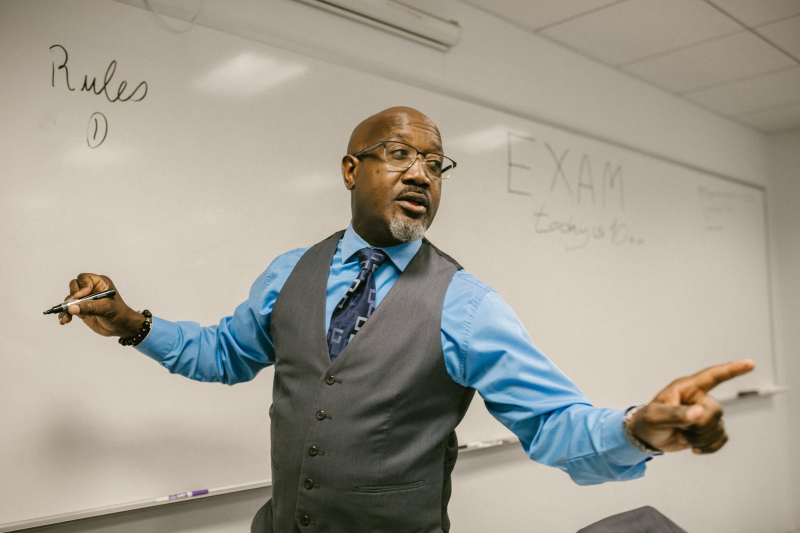
Image via Pexels 
Image via Pexels -
I. Introduction
A. Engaging Hook: Begin with a thought-provoking statement or anecdote that conveys the significance of writing a note to your future self.
B. Background: Introduce the concept of writing a letter to your future self and its purpose.
C. Thesis Statement: Clearly state the purpose of the letter and the impact it aims to have on your future self.
II. Body
- Reflection on the Present
A. Current State of Mind: Reflect on your present thoughts, emotions, and aspirations.
B. Significant Events: Highlight past experiences that have shaped your perspective and influenced the decision to write to your future self.
C. Lessons Learned: Share valuable lessons and insights gained from past experiences that you want to carry forward into the future.
- Expressing Hopes and Aspirations
A. Future Accomplishments: Discuss the goals and achievements you hope your future self has accomplished.
B. Personal Growth: Outline the personal and professional development you aspire to achieve.
C. Vision for the Future: Describe your hopes and dreams for the future and how you envision your life at the time of reading the letter.
- Encouragement and Support
A. Self-Affirmation: Provide words of encouragement and support to your future self, acknowledging their strengths and resilience.
B. Coping Strategies: Suggest coping mechanisms and strategies to handle challenges that may arise in the future.
C. Expressing Self-Compassion: Remind your future self to be kind, patient, and understanding, irrespective of the circumstances they may face.
- Reflection on Change
A. Expected Changes: Reflect on the potential changes and transitions you anticipate occurring in your life.
B. Embracing Change: Discuss the importance of embracing change and adapting to new circumstances.
C. Managing Expectations: Address the idea that not all goals may be met and share thoughts on gracefully accepting unforeseen outcomes.
III. Conclusion
A. Closing Thoughts: Summarize the purpose and significance of writing to your future self.
B. Encouragement to Reflect: Encourage your future self to reflect on the letter's contents and apply its wisdom to your life.
C. Final Messages: Conclude with final thoughts, wishes, and a reminder of the importance of staying true to oneself.

Image via Unsplash 
Image via Unsplash -
I. Introduction
A. Hook: Begin with a compelling anecdote or reflection on the initial stages of the research project to captivate the reader's attention.
B. Background: Introduce the research project, its significance, and how it came about.
C. Thesis Statement: Clearly state the lasting impact and lessons learned from the research project that made it unforgettable.
II. Body
- Project Initiation and Purpose
A. Overview of the Research Topic: Provide a brief overview of the specific research topic and its relevance.
B. Research Goals: Discuss the objectives and intended outcomes of the research project.
C. Motivation: Share what inspired you to pursue this particular research and its significance to you.
- Challenges and Milestones
A. Research Obstacles: Describe the challenges or obstacles encountered during the research process.
B. Key Milestones: Highlight significant milestones or breakthroughs achieved throughout the project.
C. Team Collaboration: Discuss the role of collaboration with peers, supervisors, or team members and its impact on the project.
- Personal Growth and Insights
A. Knowledge Acquisition: Reflect on the new knowledge and insights gained through the research process.
B. Critical Thinking and Problem-Solving: Discuss the development of critical thinking skills and the ability to tackle complex research questions.
C. Personal Transformation: Share how the research project contributed to your personal and intellectual growth.
- Unforeseen Impact
A. Unexpected Discoveries: Discuss any unexpected findings or outcomes that reshaped the direction or significance of the research project.
B. Real-world Relevance: Explore how the research findings or experiences have practical implications in a broader context.
C. Lasting Impressions: Reflect on how the project has left a lasting imprint on your academic or professional journey.
III. Conclusion
A. Reflection on Significance: Summarize the enduring impact of the research project and its influence on your academic and personal development.
B. Lessons Learned: Discuss the valuable lessons and takeaways that have contributed to your growth as a researcher and individual.
C. Closing Thoughts: Conclude with reflections on the transformative nature of the research experience and its lasting imprint on your academic journey.

Image via Unsplash 
Image via Unsplash -
I. Introduction
A. Hook: Begin with a captivating anecdote or moment that highlights the significance of the relationship with your classmate.
B. Background: Briefly introduce the college setting and the context in which you met this classmate.
C. Thesis Statement: Clearly state the profound impact and lasting impression of this particular classmate on your college experience.
II. Body
- First Impressions and Initial Interactions
A. Introduction of the Classmate: Describe the first encounter with the classmate and the initial impressions they left on you.
B. Shared Experiences: Highlight the common interests or experiences that facilitated the initial connection with the classmate.
C. Establishing a Connection: Discuss how the relationship transitioned from being acquaintances to developing a meaningful friendship.
- Support and Encouragement
A. Academic Support: Reflect on instances where the classmate provided assistance, support, or motivation in academic pursuits.
B. Personal Support: Discuss how the classmate offered emotional support, guidance, and understanding during challenging times.
C. Mutual Growth: Reflect on how the friendship with the classmate contributed to your personal and academic growth.
- Memorable Moments and Shared Adventures
A. Recounting Shared Experiences: Narrate specific memories, adventures, or milestones shared with the classmate during college.
B. Essential Lessons Learned: Discuss the valuable lessons or insights gained through shared experiences with the classmates.
C. Impact on College Experience: Reflect on how these shared moments enhanced your overall college experience.
- Unique Qualities and Influence
A. Character Traits: Highlight the unique qualities, strengths, and attributes of the classmate that left a lasting impression on you.
B. Influence on Perspective: Discuss how the classmate's perspective or approach to life and learning influenced your outlook.
C. Lasting Influence: Reflect on how the classmate's influence has continued to resonate in your life beyond college.
III. Conclusion
A. Reflection on the Classmate's Impact: Summarize the profound influence and enduring legacy of the classmate in your college journey.
B. Continuing Connection: Discuss the significance of maintaining the bond with the classmate even after college.C. Closing Thoughts: Conclude with reflections on the valuable nature of such meaningful connections and the enduring impact of this pivotal classmate.

Image via Unsplash 
Image via Unsplash -
I. Introduction
A. Hook: Begin with a captivating anecdote or reflection that captures the essence of working with the best teammate on a college project.
B. Background: Introduce the college project, the context in which the partnership was formed, and the significance of the project.
C. Thesis Statement: Clearly state the profound impact and lasting impression of the partnership with the best teammate on the college project.
II. Body
- The Formation of the Partnership
A. Initial Collaboration: Describe the circumstances that led to partnering with the best teammate on the college project.
B. Complementary Strengths: Discuss the individual strengths and attributes brought by both you and the teammate to the project.
C. Bonding Over the Project: Explore how the shared commitment to the project fostered a strong partnership.
- Synergy in Action
A. Effective Collaboration: Highlight specific instances of seamless teamwork, effective communication, and mutual understanding between you and the teammate.
B. Overcoming Challenges: Narrate how the partnership faced and overcame obstacles or setbacks during the project.
C. Achievements and Milestones: Discuss significant achievements and successful outcomes resulting from the collaboration with the best teammate.
- The Impact of the Partnership
A. Personal Growth: Reflect on how the partnership contributed to your personal and professional development.
B. Learning from Each Other: Discuss the valuable insights and knowledge gained from working closely with the best teammate. C. Lasting Influence: Reflect on how the partnership's impact extended beyond the scope of the college project.- Recounting Memorable Moments
A. Shared Experiences: Narrate specific memorable experiences, breakthroughs, or pivotal moments encountered while working with the best teammate.
B. Lessons Learned: Reflect on the valuable lessons learned through shared experiences and challenges faced together.
C. Impact on College Experience: Highlight how the partnership significantly enhanced your overall college experience.
III. Conclusion
A. Reflection on the Partner's Impact: Summarize the profound influence and enduring legacy of the partnership with the best teammate in the college project.
B. Continuing Connection: Discuss the significance of maintaining the bond with the best teammate and the lasting impact on your personal and professional journey.
C. Closing Thoughts: Conclude with reflections on the transformative nature of the collaborative experience and the enduring impact of this pivotal partnership.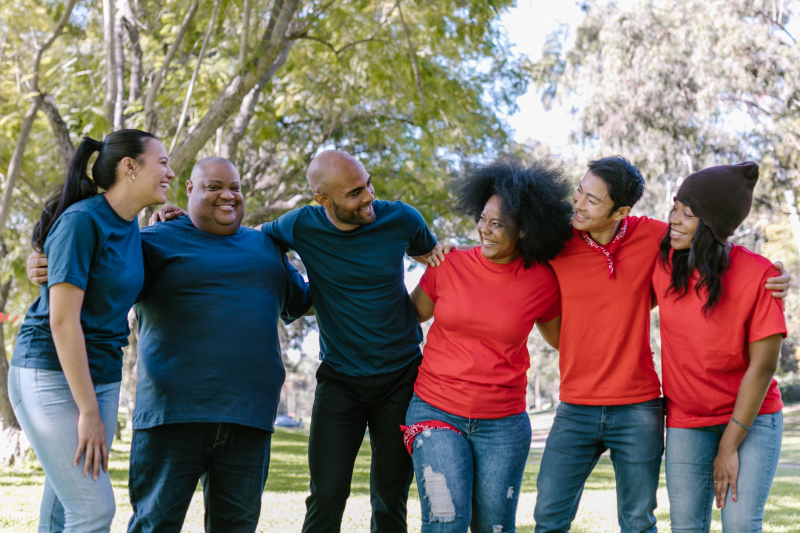
Image via Pexels 
Image via Pexels -
I. Introduction
A. Setting the Scene: Describe the anticipation and excitement leading up to the party.
B. First Impressions: Share initial thoughts and feelings upon arriving at the party.
C. Thesis Statement: Highlight the significance of this particular party and its impact on your college experience.
II. Body
- The Build-Up
A. Friendships Formed: Reflect on how relationships with new friends contributed to the excitement of attending the party.
B. Expectations and Anticipation: Describe the buzz and energy surrounding the upcoming event.
C. Preparations: Discuss the efforts made to get ready for the party and the sense of camaraderie while gearing up.
- Arrival and Immersion
A. Atmosphere and Ambiance: Detail the sights, sounds, and overall atmosphere as you enter the party venue.
B. Unforgettable Moments: Narrate specific experiences or interactions that stood out during the early stages of the event.
C. Emotions and Reactions: Reflect on the range of emotions and the initial impact of the party on your mindset.
- The Heart of the Party
A. Engaging Activities: Discuss the various activities, music, or entertainment that made the party captivating and unique.
B. Bonds Strengthened: Highlight how the party facilitated bonding and strengthened relationships with peers.
C. Memorable Conversations: Share poignant or humorous conversations that add depth to the evening's experience.
- Unforeseen Twists and Turns
A. Unexpected Surprises: Reflect on any unexpected or memorable moments that took the party in a different direction.
B. Lessons Learned: Discuss any personal insights or realizations that occurred during the party. C. Overcoming Challenges: Share how you or others navigated through challenges encountered during the event.
- Reflection and Impact
A. Personal Growth: Discuss how the experiences of the party contributed to your personal growth and self-discovery.
B. Impact on Relationships: Reflect on how the party strengthened existing friendships and forged new connections.
C. Lasting Memories: Highlight the enduring impact of the party on your college experience and future outlook.
III. Conclusion
A. Recap of Significance: Summarize the profound impact and lasting impression of the most interesting college party.
B. Lessons Learned: Discuss any valuable lessons or broader takeaways from the evening.
C. Closing Thoughts: Conclude with reflections on the enduring value of such experiences and their influence on personal growth and relationships.

Image via Pexels 
Image via Pexels -
I. Introduction
A. Introduction of the Dish: Describe the dish "veg rolls" and its significance in your college experience.
B. Personal Connection: Share your initial encounter with veg rolls and the emotions it evoked. C. Thesis Statement: Express the profound impact of veg rolls on your college days and how it became your most beloved dish.
II. Body
- Discovery and Temptation
A. First Taste: Recount the first time you tasted veg rolls and the immediate impression it left on you.
B. Tempting Aroma and Flavors: Detail the sensory experience of indulging in veg rolls, highlighting the tantalizing aroma and diverse flavors.
C. Cravings and Exploration: Discuss how veg rolls became a staple in your college dining experience and the curiosity that led to further exploration of the dish.
- Culinary Journeys with Veg Rolls
A. Variety and Versatility: Explore the different variations of veg rolls you encountered, from various fillings to regional twists.
B. Shared Experiences: Share memorable instances of enjoying veg rolls with friends or discovering new eateries serving exceptional veg rolls.
C. Emotional Comfort: Reflect on how veg rolls became a source of comfort and familiarity during demanding college days.
- Cultural and Social Significance
A. The Cultural Connection: Discuss the cultural background of veg rolls, and how it enriched your understanding of diverse cuisines.
B. Bonding Over Veg Rolls: Narrate instances of bonding and connection with fellow students over a shared love for veg rolls.
C. Festive Celebrations: Recall how veg rolls became a part of celebrations and gatherings, enhancing the joyous atmosphere.
- Personal Growth and Reflection
A. Developing Tastes: Reflect on how your palate evolved and expanded through your fondness for veg rolls.
B. Lessons Beyond the Dish: Discuss the broader lessons and insights gained through your experience with veg rolls, such as openness to new experiences and appreciation for cultural diversity.
C. Nostalgic Reveries: Share the sentimental value of veg rolls, and how it became intertwined with cherished memories of your college days.
III. Conclusion
A. Post-College Reflection: Highlight how your love for veg rolls and the memories associated with it have persisted beyond your college years.
B. Recreating the Experience: Discuss how you continue to seek out veg rolls and relive the nostalgic experiences associated with the dish.
C. Closing Thoughts: Conclude with reflections on how your love for veg rolls has enriched your college experience and left an indelible mark on your culinary journey.

Image via Unsplash 
Image via Unsplash -
I. Introduction
A. Setting the Scene: Describe the college atmosphere, a place teeming with excitement, diversity, and endless possibilities.B. Introduction to the Protagonists: Introduce myself and the anticipation of starting this new chapter of life.
II. Body
- The First Encounter
A. Orientation Week: Share the initial experiences during orientation week, navigating the campus, and meeting new faces.
B. The Unlikely Introduction: Narrate the unexpected encounter with my life mate - perhaps a chance meeting in a crowded lecture hall or a shared laugh during an icebreaker.- Building Friendship
A. Shared Interests: Explore the common interests and activities that drew us together.
B. The Power of Laughter: Highlight moments of shared laughter and camaraderie, laying the foundation for a deep connection.- Challenges and Growth
A. Navigating College Life: Describe the challenges faced individually and as a couple while navigating the complexities of college life.
B. Personal Growth: Reflect on how the relationship contributed to personal growth and development.- Milestones and Memorable Moments
A. Celebrating Achievements: Share significant milestones celebrated together, from academic successes to personal achievements.
B. Unforgettable Moments: Recount special moments that define the journey, creating lasting memories.- The Transition to Life Partners
A. Realizing Deeper Feelings: Discuss the realization of deeper emotions and the transition from college sweethearts to life partners.
B. Facing the Future Together: Explore the mutual decision to face post-college life together, including career choices and plans.III. Conclusion
A. Reflecting on the Journey: Summarize the narrative, reflecting on the transformative journey of meeting my lifemate in college.
B. Emphasize the Significance: Conclude by emphasizing the profound impact of this college connection, which blossomed into a lifelong partnership.
Image via Unsplash 
Image via Unsplash -
I. Introduction
A. Set the Scene: Paint a picture of the college environment and the atmosphere during your freshman year.
B. Chance Encounter: Describe the circumstances that led to your first meeting with your life mate.
C. Thesis Statement: Express the profound impact of meeting your life mate in college and the journey that followed.
II. Body
- The Initial Connection
A. Meeting Through Mutual Friends: Share the story of how you and your life mate first crossed paths, potentially through mutual connections.
B. First Impressions: Reflect on the initial thoughts and emotions upon meeting your life mate for the first time.
C. Early Interactions: Discuss the early conversations and interactions that laid the foundation for your developing relationship.
- Navigating College Together
A. Shared College Experiences: Narrate moments when you and your lifemate supported each other through the college journey, academically and emotionally.
B. Mutual Growth: Discuss how your lifemate influenced your college experience and how you influenced theirs.
C. Challenges Faced Together: Reflect on the obstacles or challenges you both encountered and how they brought you closer.
- Building a Lasting Connection
A. Deepening the Bond: Describe how your relationship progressed from initial interaction to a deeper emotional connection.
B. Shared Interests and Values: Highlight the common interests, values, and aspirations that solidified your partnership.
C. Forming Memories Together: Share specific moments or experiences that strengthened your bond during college.
- Beyond the Campus
A. Transitioning to Life after College: Reflect on how your relationship evolved as you and your life mate graduated and moved into the next phase of life.
B. Navigating Post-College Challenges: Share how you both supported each other during the transition from college to the professional world.
C. The Enduring Connection: Discuss the lasting impact of meeting your life mate in college and the role it continues to play in your life.
III. Conclusion
A. Personal Growth: Reflect on how your life mate has contributed to your personal growth and development.
B. Reciprocal Influence: Discuss how you have influenced your life mate and the growth you have experienced together.
C. Gratitude and Reflections: Conclude with reflections on the profound gratitude for meeting your lifemate in college and the transformative impact it has had on both of your lives.

Image via Pexels 
Image via Pexels -
I. Introduction
A. Setting the Stage: Introduce the college environment and the diverse experiences students face.
B. Overview of College Challenges: Highlight the multifaceted hardships encountered by college students.
C. Thesis Statement: Convey the complexities and struggles that students grapple with in pursuit of academic and personal growth.
II. Body
- Academic Pressure and Responsibility
A. Balancing Act: Discuss the demanding nature of academic responsibilities, including coursework, exams, and projects.
B. Time Management: Explore the challenge of managing time effectively to juggle academic commitments and personal life.
C. The Weight of Expectations: Address the pressure to excel academically and the emotional toll it can take on students.
- Financial Strain and Budgeting
A. Tuition and Expenses: Delve into the financial burdens associated with tuition fees, textbooks, accommodation, and daily living costs.
B. Working While Studying: Discuss the prevalence of students working part-time jobs to support themselves financially and its impact on their overall well-being.
C. Navigating Debt and Loans: Explore the stress and uncertainty that come with managing student loans and debt.
- Mental Health and Wellbeing
A. Emotional Rollercoaster: Discuss the emotional challenges students face, including homesickness, anxiety, and imposter syndrome.
B. Stigma and Seeking Support: Address the stigma surrounding mental health issues and the importance of seeking help and support.
C. Self-Care and Coping Strategies: Highlight the various methods students employ to manage stress and prioritize their mental and emotional well-being.
- Social and Personal Struggles
A. Finding Community: Explore the difficulties of building social connections and a sense of belonging on campus, especially for first-year students.
B. Identity and Diversity: Discuss the challenges related to navigating cultural, racial, or gender diversity within a college environment.
C. Balancing Personal Life: Address the struggle of maintaining healthy relationships and personal growth amid the demands of college life.
III. Conclusion
A. Overcoming Adversity: Highlight instances of resilience and perseverance in the face of challenges.
B. Lessons Learned: Reflect on the valuable lessons and personal growth that emerge from navigating the hardships of college life.
C. Empowerment and Hope: Conclude with a message of empowerment and hope, emphasizing the strength and resilience of college students in overcoming adversity.

Image via Unsplash 
Image via Unsplash -
I. Introduction
A. Setting the Stage: Describe the typical atmosphere and routine at your college before the mass bunk incident.
B. The Catalyst: Introduce the concept of the mass bunk and its significance in altering the course of events.
C. Thesis Statement: Emphasize the transformative impact of the mass bunk on your college experience and its aftermath.
II. Body
- The Decision to Bunk
A. Context and Planning: Discuss the circumstances that led to the decision to participate in the mass bunk.
B. Rationalization and Excitement: Reflect on the mindset and emotions of the students leading up to the event.
C. Unity and Camaraderie: Highlight the sense of togetherness and solidarity among the students involved in the mass bunk.
- The Ripples of Change
A. Immediate Effects: Narrate the immediate aftermath of the mass bunk and the reactions from students, faculty, and the college administration.
B. Disruption and Consequences: Explore how the mass bunk disrupted the regular academic schedule and the repercussions it brought.
C. Unanticipated Outcomes: Discuss the unexpected shifts in dynamics and perceptions that occurred as a result of the mass bunk.
- Reflection and Personal Growth
A. Self-Discovery: Reflect on the personal insights gained from participating in the mass bunk and defying the norm.
B. Questioning Authority: Discuss the impact of challenging the status quo and its influence on your perspective.
C. Lessons Learned: Highlight the valuable lessons acquired from the experience and its lasting impact on your character.
- Evolving Dynamics
A. Changing Interactions: Describe how the mass bunk altered the relationships and interactions among students and with the college faculty.
B. Shift in Attitudes: Discuss the changing attitudes and perceptions of students towards institutional rules and regulations.
C. The New Normal: Illustrate the lasting changes in the college culture and environment following the mass bunk.
- Repercussions and Resolutions
A. Accountability and Reconciliation: Addressing how the college authorities responded to the mass bunk and any disciplinary measures taken.
B. Negotiating Change: Explore the dialogue between students and the college administration in the aftermath of the incident.
C. Resilience and Adaptation: Discuss how the college community adapted to the shifts brought about by the mass bunk and the subsequent changes in the college environment.
III. Conclusion
A. Evolution of Perspectives: Reflect on the evolution of your perspectives and those of your peers as a result of the mass bunk experience.
B. Perpetual Impact: Emphasize the enduring influence of the mass bunk on your college and personal growth.
C. Final Thoughts: Conclude with reflections on the broader implications of the mass bunk and the transformative power of collective action.

Image via Unsplash 
Image via Unsplash






















